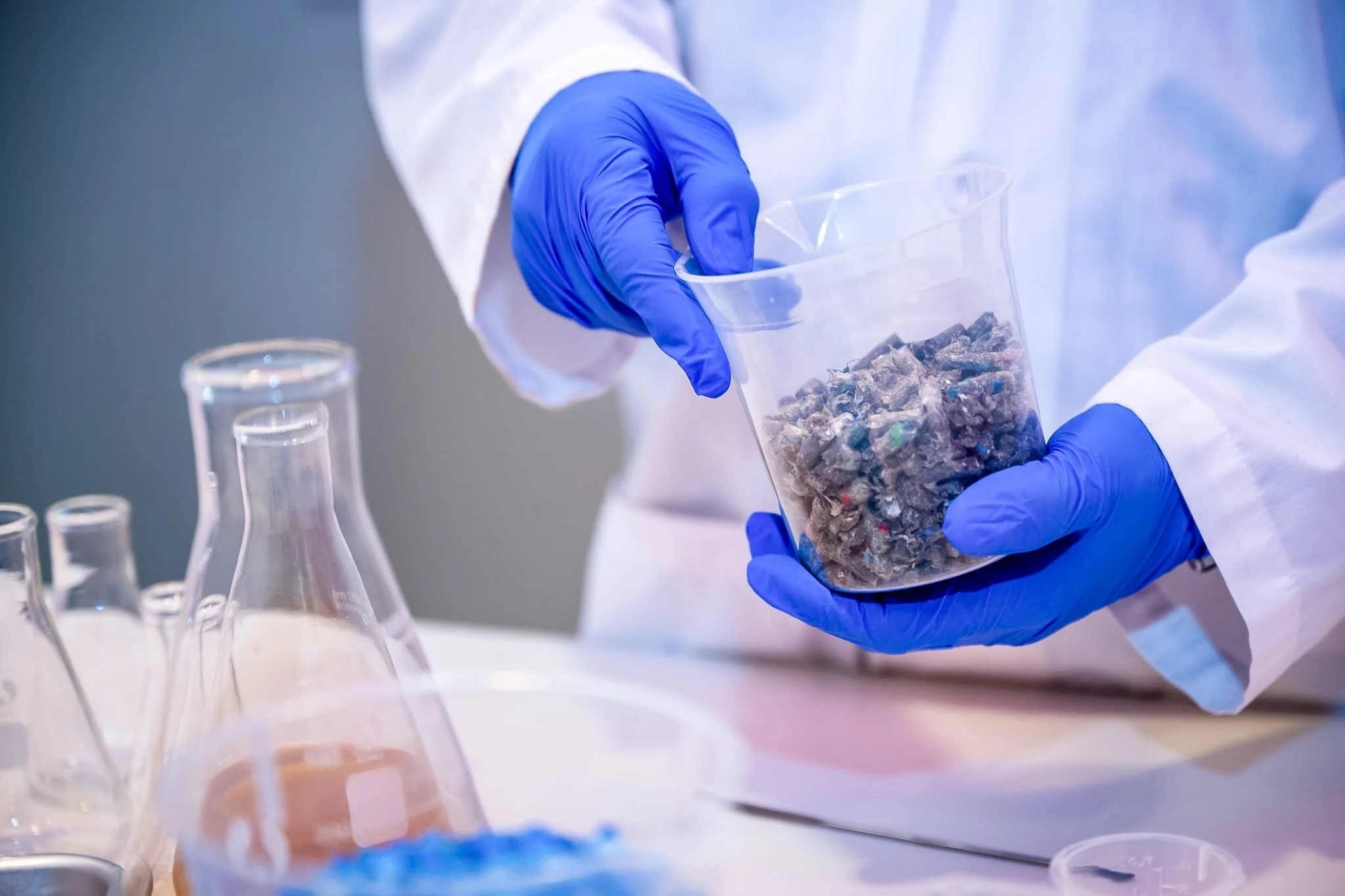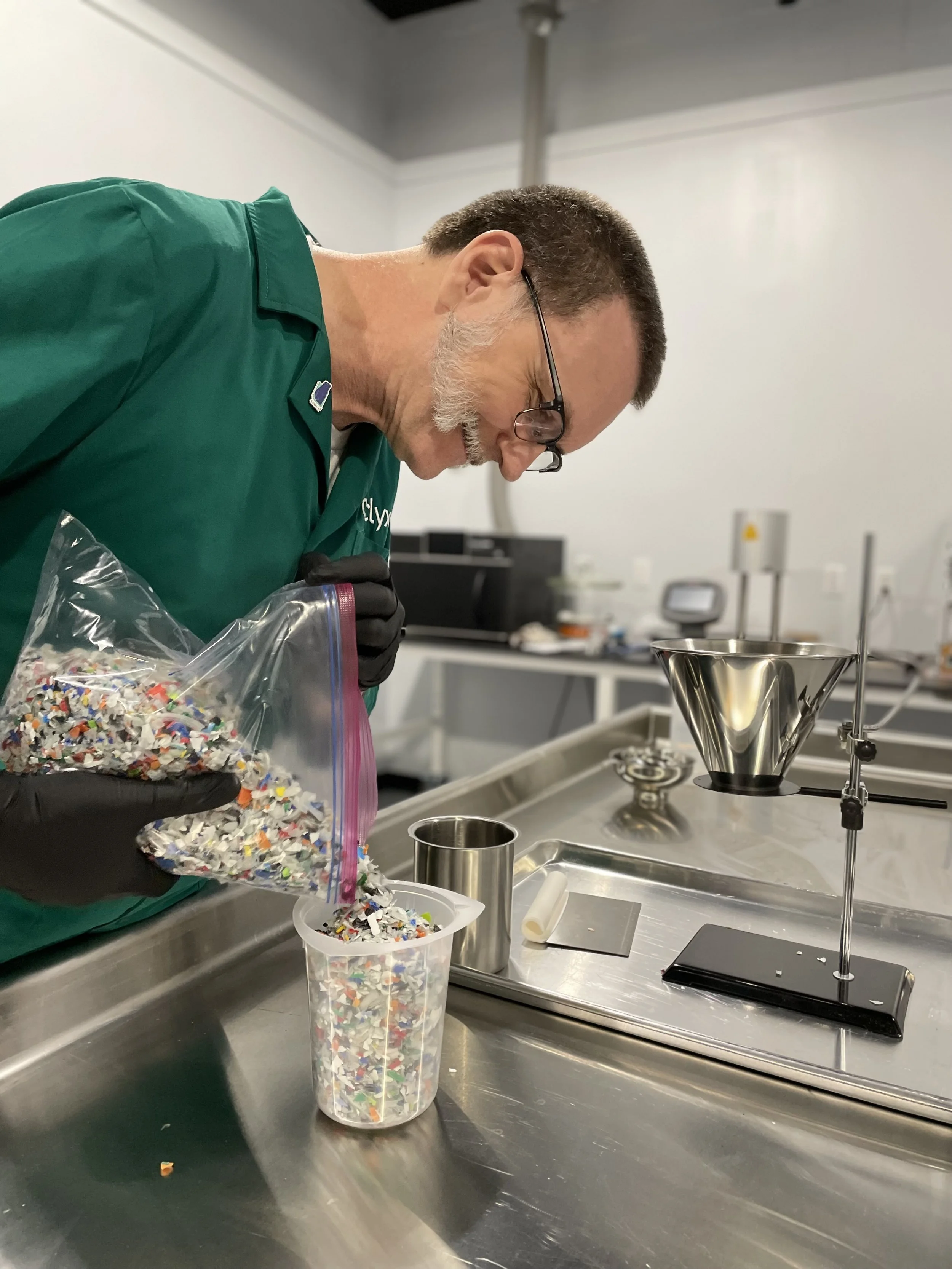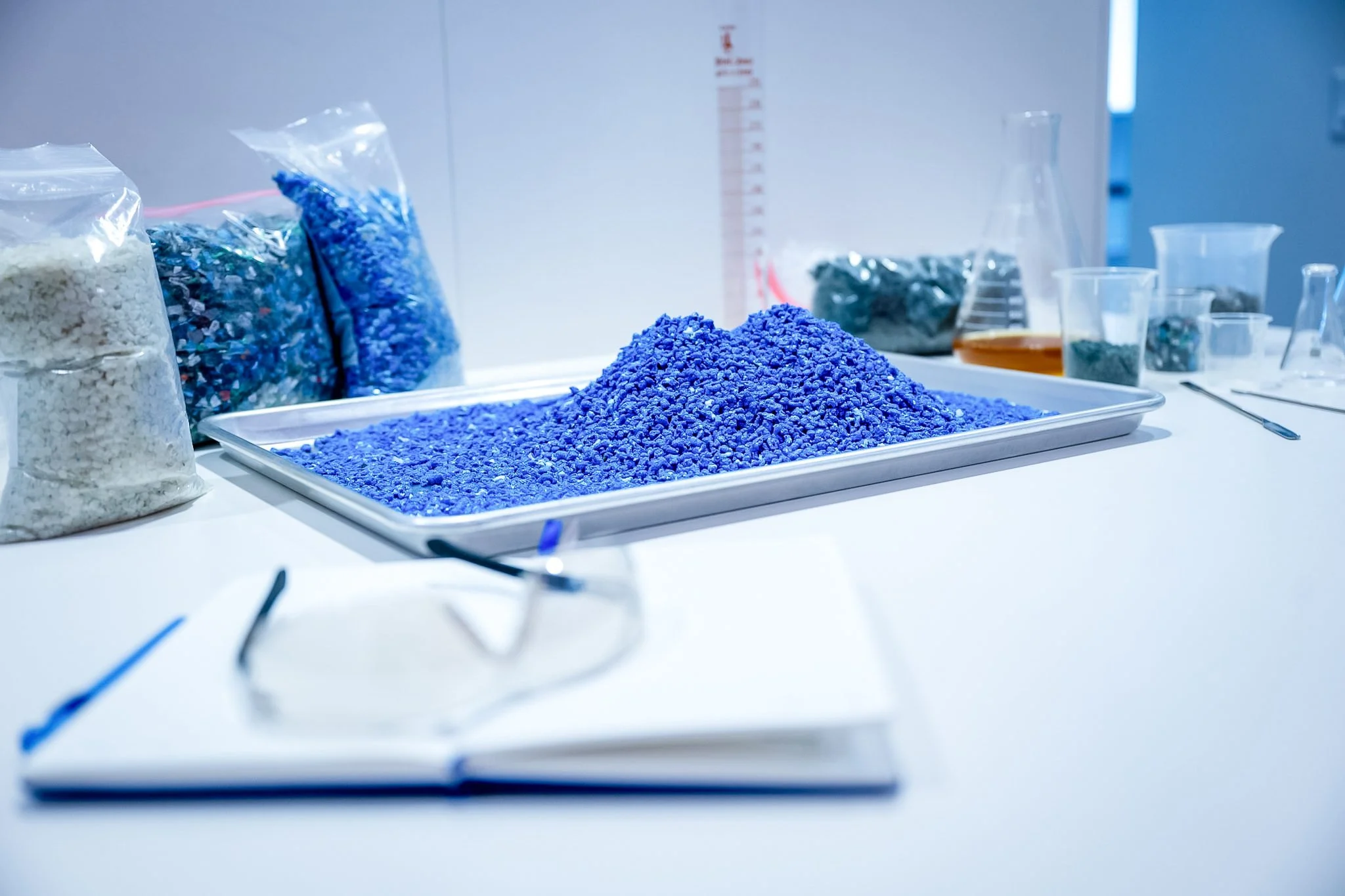
Innovation— it’s what sets Cyclyx apart . We leverage deep expertise to accept, analyze and process a range of mixed plastic materials.
TECHNOLOGY
↓
Technology transforms waste into value
Plastics are essential to modern life, offering lightweight, durable, and cost-effective solutions across healthcare, transportation, packaging, and technology. But when these materials reach the end of their useful life, recycling—not landfilling or incineration—is the most responsible path forward. Achieving this at scale requires innovation.
We believe technology is the foundation of plastic recycling. It allows us to process complex, mixed-material waste streams that traditional mechanical methods simply can't handle—driving circularity across industries.
Bridging industries for a circular future
Cyclyx connects key players across the value chain—from waste management and collection to the chemical manufacturing of everyday products—to create a more integrated and effective recycling ecosystem. Our goal is to make it easier to collect, sort, and repurpose plastic waste into valuable new materials.
Improving on traditional technologies
Some plastics, like clean PET water bottles and HDPE milk jugs, are relatively easy to recycle. They can be shredded, melted down, and reused. But traditional technologies are limited. Many everyday plastic products are far more difficult to recycle due to contamination, additives, or complex chemical compositions.
Flexible packaging and plastic films are often engineered by layering multiple thin, pliable materials—typically a combination of different plastics, and sometimes metals or paper. These multi-layered structures create highly-effective barriers against air and moisture, making them ideal for preserving perishable goods like snacks and produce. Their ability to extend shelf life and reduce spoilage has made this type of packaging increasingly popular across industries.
Multilayered films, metalized packaging like chip bags, and plastics containing adhesives or food residue often bypass conventional recycling systems—not due to lack of value, but because traditional infrastructure isn’t designed to process them. Their complex molecular makeup makes sorting difficult, and as a result, these materials have significantly lower curbside recycling rates and frequently end up in landfills or incinerators.
At Cyclyx, we’re addressing this challenge head-on by applying advanced technology and materials science to expand what’s possible in plastic recovery.
“Cyclyx is working with scientists across the globe to develop new ASTM standards for testing plastic waste feedstock.”
-Anita Augustyniak, PhD, Lead Scientist
Our science-driven solution
Through the expertise of our materials science team, Cyclyx has developed data-driven methodologies and advanced sorting technologies that enable us to accept a broad spectrum of plastic waste—including mixed polymers and materials with high levels of contamination.
What sets Cyclyx apart is our ability to process and analyze highly-variable mixed plastic waste streams. At our Cyclyx Circularity Lab in New Hampshire, we perform more than a dozen specialized tests to characterize plastic waste. These evaluations assess both physical properties and chemical composition, including the concentration of potential contaminants. Our techniques include ion chromatography, gas chromatography, microwave digestion, and optical emission spectroscopy.
This rigorous testing process allows us to identify the challenges and impurities within each material stream, enabling us to transform plastic waste into custom-formulated feedstock, tailored to the exact specifications of our customers. As a result, our advanced recycling customers can convert plastic waste back into its molecular building blocks—producing virgin-quality materials for new plastics and other high-value products.
Smart technology, smarter recycling
Cyclyx’s operations harness the power of data, imaging, and sorting technologies to dramatically enhance how plastic waste is collected and processed. By combining our proprietary plastics database with advanced sorting algorithms and technology, we can identify the molecular composition of materials with precision—allowing us to sort and process a broader range of plastics, including those traditionally deemed unrecyclable.
As a result:
Consumers don’t need to be experts in sorting
A wider variety of plastics can be recovered and repurposed
Contaminated or mixed plastics can be diverted from landfills and transformed into valuable new materials
Building infrastructure for change
One of the most significant barriers to effective plastic recycling is the lack of infrastructure to properly collect, sort, and process diverse waste streams. We’re working to change that—by expanding access to recycling, deploying data-driven technologies, and building first-of-its-kind facilities to process mixed plastic waste to develop ISCC- PLUS feedstock for advanced and mechanical recycling.





